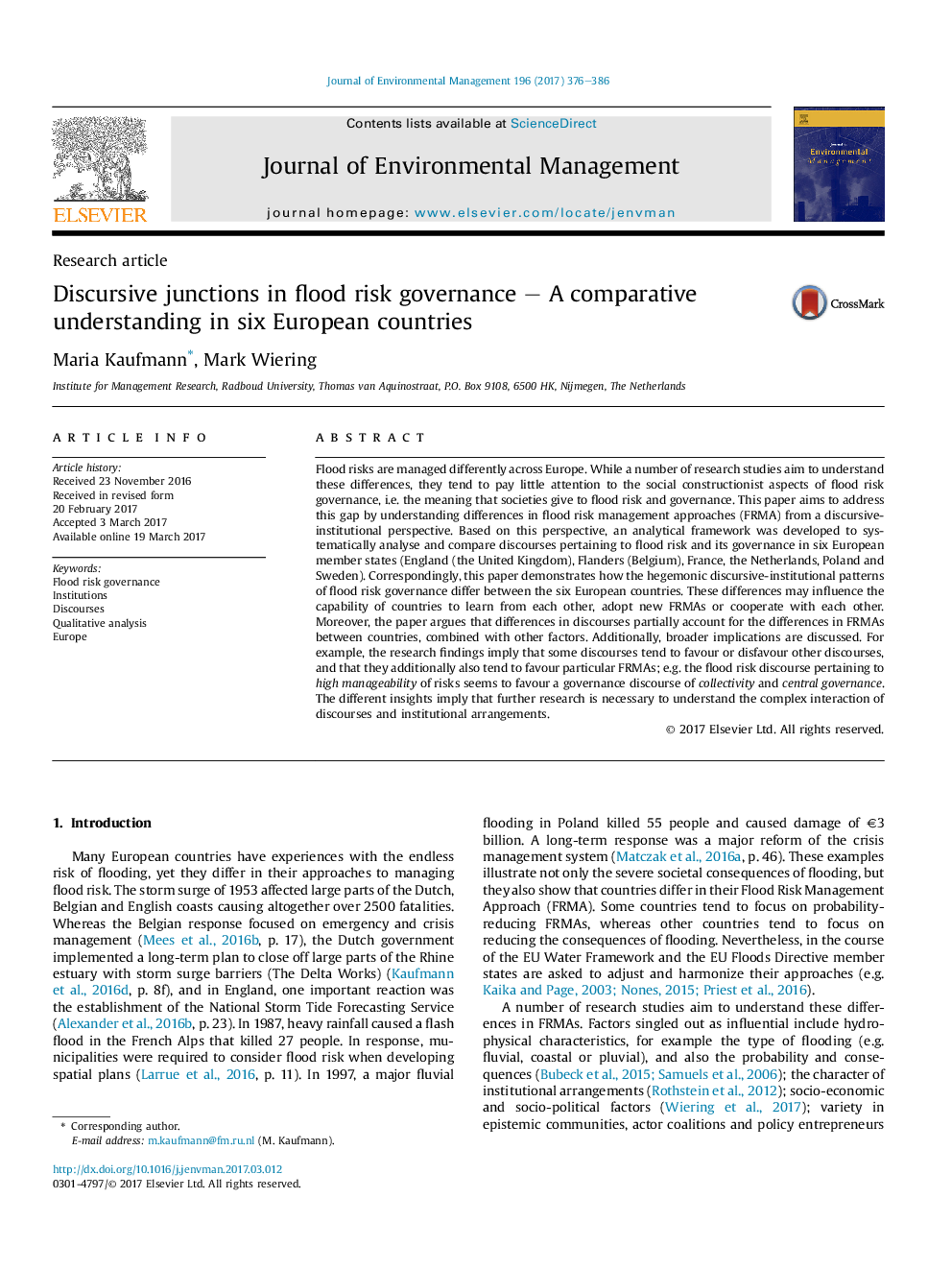| Article ID | Journal | Published Year | Pages | File Type |
|---|---|---|---|---|
| 5116679 | Journal of Environmental Management | 2017 | 11 Pages |
â¢An analytical framework was developed to systematically compare discourses in flood governance.â¢Analyzing six countries, the research revealed differences in discursive-institutional patterns.â¢Differences in discourses partially explain differences in flood risk management approaches.â¢The dis.-inst. pattern may influence the effective implementation of new management approaches.
Flood risks are managed differently across Europe. While a number of research studies aim to understand these differences, they tend to pay little attention to the social constructionist aspects of flood risk governance, i.e. the meaning that societies give to flood risk and governance. This paper aims to address this gap by understanding differences in flood risk management approaches (FRMA) from a discursive-institutional perspective. Based on this perspective, an analytical framework was developed to systematically analyse and compare discourses pertaining to flood risk and its governance in six European member states (England (the United Kingdom), Flanders (Belgium), France, the Netherlands, Poland and Sweden). Correspondingly, this paper demonstrates how the hegemonic discursive-institutional patterns of flood risk governance differ between the six European countries. These differences may influence the capability of countries to learn from each other, adopt new FRMAs or cooperate with each other. Moreover, the paper argues that differences in discourses partially account for the differences in FRMAs between countries, combined with other factors. Additionally, broader implications are discussed. For example, the research findings imply that some discourses tend to favour or disfavour other discourses, and that they additionally also tend to favour particular FRMAs; e.g. the flood risk discourse pertaining to high manageability of risks seems to favour a governance discourse of collectivity and central governance. The different insights imply that further research is necessary to understand the complex interaction of discourses and institutional arrangements.
